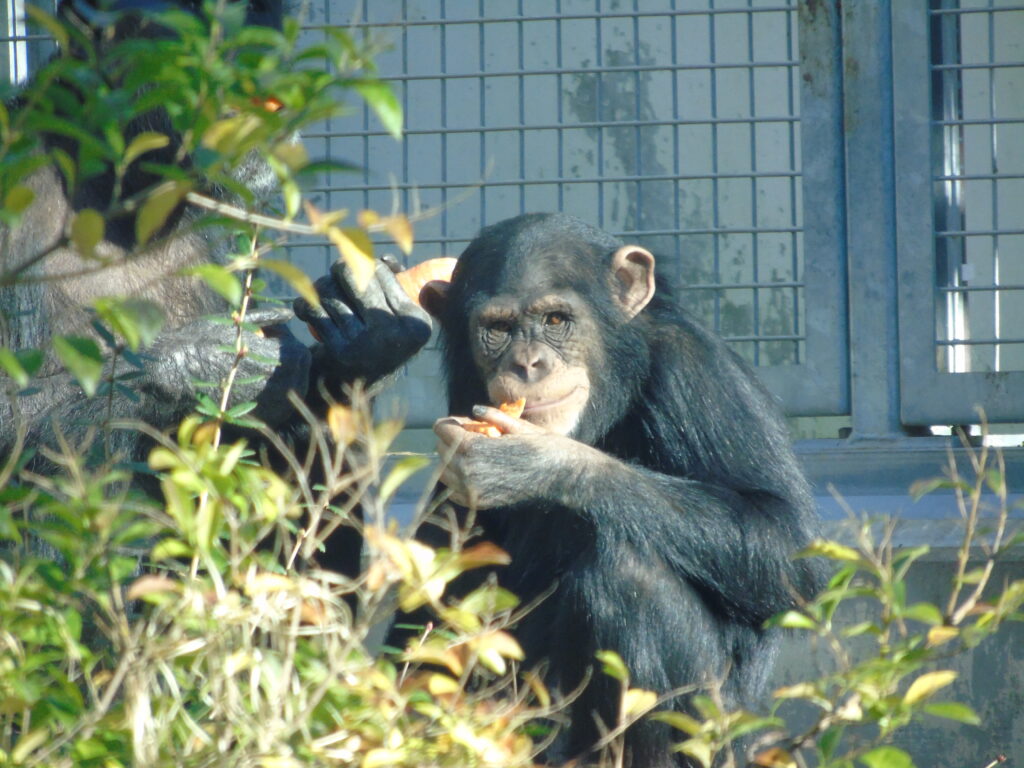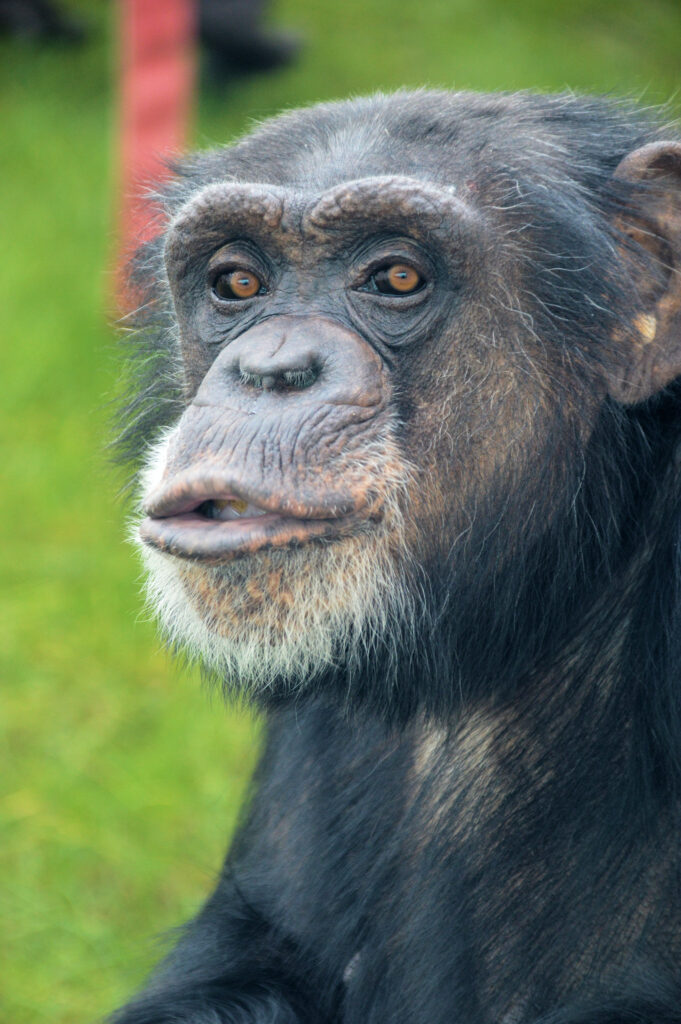Emergency recall is one behaviour which I’ve been so excited to start. It is a challenging behaviour but so rewarding to see when it begins to take shape.
What is an emergency recall?
An emergency recall is much stricter than the normal recall. It is necessary that we do this for the animals to get them to come inside.
The criteria of the emergency recall are:
- All animals respond quickly to the signal.
- Abandon what they have/ or are doing.
- Quickly proceed to the bedrooms to be shut in.
They must respond to the signal wherever it is made, and not the keeper. I also set the time criteria to under 30 seconds which was quite challenging also.
In theory, this behaviour should never have to be used. But in cases of a fault in the enclosure/broken enrichment etc., it can be used to get all the animals into safety very quickly.

Starting this training
The chimps are the first to begin the training. I allocated them a very loud personal alarm as their emergency recall signal. I first tested it to see if it was loud enough for them to respond to, which it definitely was! When they first heard the alarm, we paired it with high rewards for still coming over to the bedrooms when we called them over, e.g. giving them lots of encouragement. This is just as an initial reward for accepting this loud noise.
Over the next few sessions we planned out jackpots which were either placed in the bedroom or given through the mesh by the keepers.
On the scheduled days of the emergency recall, we picked a time that they do not normally get fed, sounded the alarm and encouraged the chimps into the bedrooms, as soon as all the chimps were in, the alarm was switched off, and they were left to enjoy the high value rewards. No one was shut in during these early sessions.
The reinforcer MUST be different every session. This means that they will not become used to the reward, instead they are curious – they have no idea what the jackpot will be, but they know that every time they hear that signal, there is something amazing in the bedrooms. This is something which usually isn’t there. That curiosity is a powerful incentive to abandon what they are currently doing and that’s what we need to achieve. The sessions also cannot be too often, the signal needs to be one that is once in a while but very memorable, this too builds the excitement when they hear it.

Has it been successful so far?
So far, its going very well, the chimps are not aversive to the loud alarm and we have been able to shut them all in within 30 seconds in most sessions.
Once they had heard the alarm a few times and had paired it to the jackpots, we were able to shorten the time it took for the response to the signal. Now, it is good that they come over when the alarm sounds, however, for this to fit the criteria, we need them to stop what they are doing. For example, abandon what they are doing to go into the bedrooms. In order to test the response to the alarm, distractions must be included in the training plan.
An example
This is exactly what we did in a recent session where enrichment was placed on the mesh in the training area and the chimps made their way over and were using it for a few minutes, others had made their way over to the far side of the communal area. We then set the alarm off. 7 out of the 8 chimps abandoned the enrichment and quickly made their way to the bedrooms where they had a jackpot waiting. Faye was the only who didn’t complete the behaviour this time and we put that down to her being the lowest ranking – so having the enrichment to herself was quite a rarity. However, the response of the rest of the group was incredible, all were in the bedrooms and shut inside at 18 seconds and I was really pleased with that session.
Tubs containing food placed on mesh as distraction. In the video, you can see Georgia is about to get some sweet potato out of the tub. However, upon hearing the alarm she hesitates and continues with the sweet potato and then abandons it. This is perfect and exactly the response I want.


It’s still very early days and with continued focus on these sessions the response will only get stronger. I will also be introducing bigger distractions to test it. This behaviour is one of the highlights of my career and I’m so pleased to see it taking shape.
I have also started the emergency recall with the tigers and the orangutans. It will be exciting to see how they progress in this behaviour!



No Comments
Be the first to start a conversation